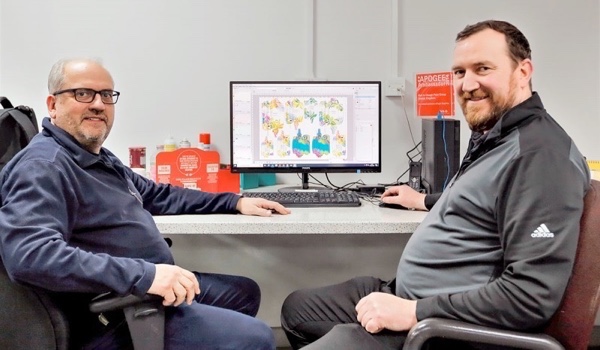Prepress
Hart & Clough automates packaging production

Monday 27. March 2023 - The Hart & Clough Print Group, based in Cleckheaton near Leeds, is one of the oldest print companies in the United Kingdom. Its three divisions offer general commercial printing, book printing and print finishing services.
Hart & Clough is a long-time user of the Apogee workflow, which drives their Avalon N8 computer-to-plate system to output Energy Elite Pro plates. Apogee is also used to process packaging jobs, but prepress managers Stuart Hutchinson and Andrew Firth were delighted when Agfa demonstrated the Packaging Pack option for their workflow.
Packaging Pack is a module for the Apogee Prepress workflow system that adds a new user interface for creating print sheets for single and double-sided unbound jobs. This job editor enables operators to nest artwork by importing a DFX or CFF2 CAD/CAM file. The module can also automatically step-and-repeat artwork if such file is available. Additional functions include handling the overprint of flaps and adding station numbers, ink eaters, or other press marks. Apogee functions such as preflighting, proofing or DQS are also available for Packaging Pack jobs.
For Stuart and Andrew, Packaging Pack was the answer to their problems handling and interlocking artwork while confidently retaining data integrity. Previously, artwork had to be taken into Illustrator and imposed manually. The flat then had to be exported to Apogee Prepress for rendering.
“Now, with a few steps, we can import the CAD file, add the artwork automatically and plate the job up in a fraction of the time taken previously, knowing that the artwork is safe!”, says Stuart Hutchinson.
Packaging Pack isnt the only module to extend the scope of Apogee. The DigitalPrint Link option facilitates print production on digital presses. The Wide Format module turns Apogee into a large-format printing powerhouse. With these extensions, Apogee can be a universal prepress production hub that centralizes and automates all data handling. This simplifies job management, saves time and reduces the cost and overhead of using multiple RIPs and workflows in parallel.
